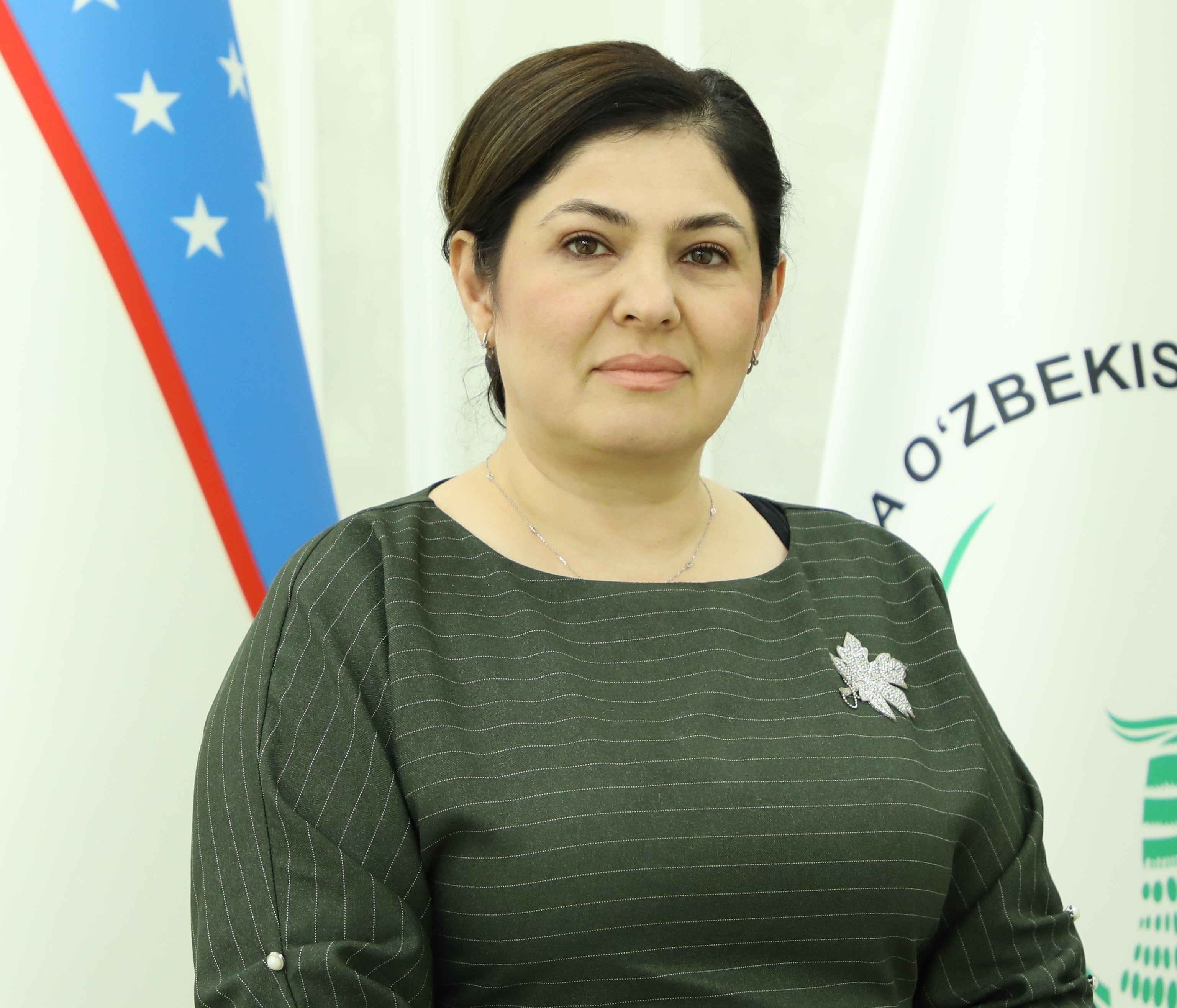Interview: “To advance gender equality and ensure that no one is left behind, data must be the foundation of every policy decision”
Date:

Ms. Dilnoza Muratova is the Deputy Director of the National Centre of the Republic of Uzbekistan for Human Rights. She is the author of more than 20 scientific publications on human rights, international law, constitutional law, democracy, and regional issues. Ms. Muratova was a key speaker at the peer learning round table on Sustainable Development Goal 5 (SDG 5), “The Time is Now: Inclusive, Evidence-Based, and Transformative Solutions for Gender Equality and Women’s Empowerment,” organized by the UN Women Regional Office in Europe and Central Asia during the 2025 Regional Forum on Sustainable Development in Geneva. In this interview, she dives into how we can leverage gender data for policy action and shares Uzbekistan’s “know-how” in this area.
Ms. Muratova, what key mechanisms can help ensure the long-term sustainability and political commitment to gender equality?
Achieving gender equality is not a one-time goal — it is a continuous process that requires sustained political will, institutional commitment, and inclusive engagement across society. Several key mechanisms are essential:
First, a strong legal and institutional framework is fundamental. The success of reforms depends on strong and sustained political commitment. Uzbekistan has aligned its national legislation with key international instruments, including CEDAW, and continues to build institutional capacity, including through the establishment of the Commission on Gender Equality, chaired by the President of the Senate of the Oliy Majlis.
Second, political will and leadership are critical. In Uzbekistan, the growing presence of women in Parliament - 38% in the lower chamber and 27% in the upper chamber -, as well as in executive roles at the local level - 25% of local representative bodies -, reflects a shift toward inclusive, gender-responsive governance.
Third, gender-responsive policymaking and budgeting are vital to translating commitments into action. Uzbekistan is mainstreaming gender in national development strategies and state programs, including through pilot initiatives on gender-responsive budgeting. Without sustainable financing and quality monitoring, it will remain just wishful thinking.
Reliable, gender-disaggregated data is another pillar of sustainable progress. Uzbekistan is strengthening its national statistical capacity in partnership with UN agencies, recognizing that no effective policy can be designed or monitored without accurate and timely data.
Fifth, lasting change requires multi-stakeholder collaboration. Parliaments, governments, civil society, academia, and the private sector must work together to promote gender equality. National mechanisms for women’s advancement should act as conveners and coordinators of these partnerships.
Finally, education and public engagement are key. Uzbekistan is investing in youth education on gender equality, supporting women’s leadership initiatives, and engaging civil society and the private sector to challenge gender stereotypes and build a culture of equal opportunity.
How does gender-disaggregated data contribute to advancing gender equality, and what challenges exist in collecting and utilizing such data effectively?
Gender-disaggregated data is essential for developing and evaluating effective gender equality policies. It reveals structural inequalities and supports the design of targeted solutions that address the specific needs of women and men across sectors such as employment, education, health, political participation, and access to services.
Uzbekistan has made notable progress in this area. In cooperation with UN Women, the National Committee on Statistics has significantly enhanced its capacity to collect, analyze, and publish gender-disaggregated data. Disaggregating by sex, age, location, and other variables enables more targeted interventions — from reducing employment gaps to supporting women entrepreneurs and improving maternal health. This approach enhances transparency, strengthens accountability, and supports progress tracking for SDG 5.
In partnership with UN Women and UNFPA, Uzbekistan is developing its first National Gender Equality Profile — a comprehensive analytical tool to inform future reforms. The country is also participating in the first Central Asian regional femicide study led by UN Women — addressing a long-overlooked issue.
However, challenges persist. A lack of standardized methodologies limits data comparability. Data gaps remain in areas such as informal work and unpaid care. Statistical systems require further investment, inter-agency coordination, and capacity-building. Harmful gender norms may also hinder the accurate collection of data on issues such as gender-based violence.
Why is reliable gender data crucial for designing and implementing effective policies?
Policies are only as effective as the evidence they are built upon. Reliable gender data is essential. It highlights gender-specific challenges, guides targeted policymaking, tracks progress on SDG 5 and other related goals, and strengthens transparency and accountability. It also empowers civil society, researchers, and the media to track progress and advocate for meaningful change. This fosters inclusive public dialogue and builds greater trust in institutions.
In Uzbekistan, gender-disaggregated data has revealed critical issues — including pay gaps, higher poverty rates among women, and unequal access to justice, education and health services. These insights have shaped key policies aimed at economic empowerment, preventing gender-based violence, and increasing women's political participation.
How can policymakers improve its collection and application, and what’s Uzbekistan’s experience in this regard?
Uzbekistan’s experience shows that investing in gender data is an investment in smarter, fairer policymaking. The National Committee on Statistics operates a dedicated gender data portal, offering public access to sex-disaggregated statistics in health, education, employment, and governance. This platform promotes transparency and allows policymakers and citizens to monitor gender-related trends.
Uzbekistan is aligning its national statistical system with global standards, such as the UN’s Minimum Set of Gender Indicators. Efforts are also underway to integrate gender-sensitive data at the local level — particularly in regional planning and budgeting.
This experience underscores a larger lesson: to advance gender equality and ensure that no one is left behind, data must become the foundation of every policy decision.
Policymakers can significantly enhance gender data collection and application by focusing on four key “E’s”: establish national gender data strategies; equip institutions and professionals; enable data use; and engage civil society.
By embracing these four principles, governments can turn gender data into a powerful engine for equity, resilience, and sustainable development.